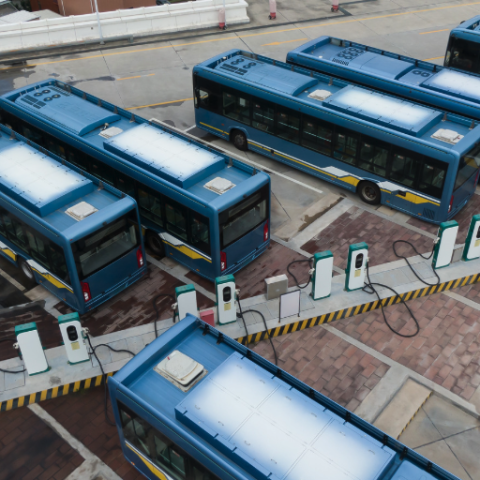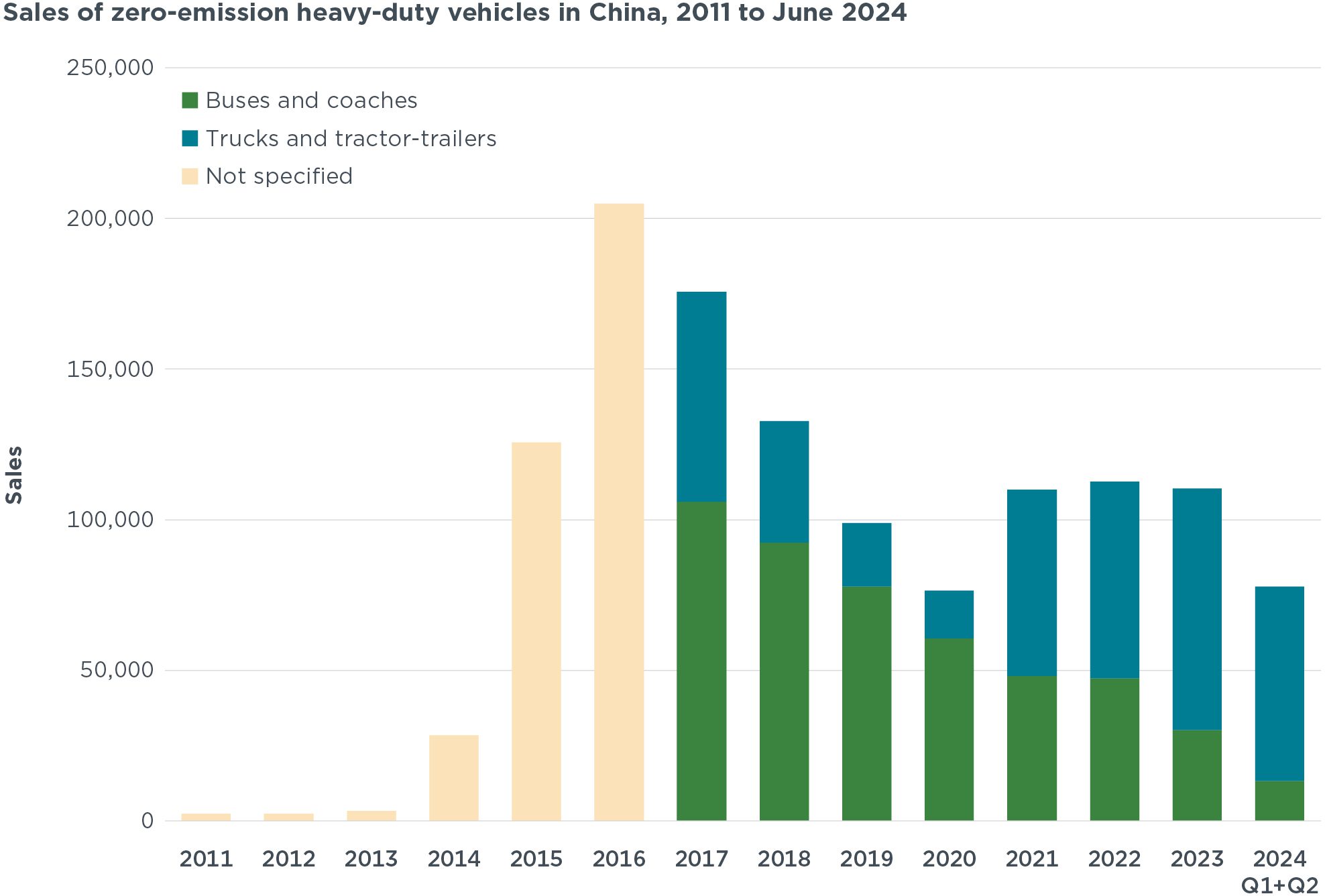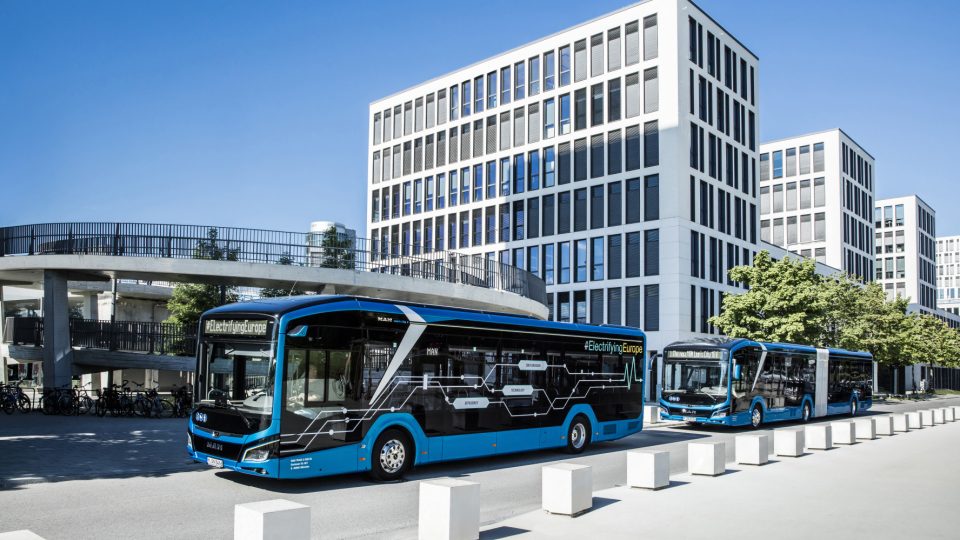In China sales of e-bus and coach sales are decreasing since 2017 (only 6% of coaches are ZE)
While electric bus share in the city bus segment is “almost 100%” as of mid-2024 in China, electrification of coaches is lagging (a lot) behind: their share was around 6% in the first half of 2024. The International Council on Clean Transportation (ICCT) released a new report on zero-emission (or new energy) industrial vehicle sales […]

While electric bus share in the city bus segment is “almost 100%” as of mid-2024 in China, electrification of coaches is lagging (a lot) behind: their share was around 6% in the first half of 2024.
The International Council on Clean Transportation (ICCT) released a new report on zero-emission (or new energy) industrial vehicle sales in China, considering segments above 3.5 tonnes.
In absolute figures, total zero emission heavy-duty vehicles sales in the first half of the year reached approximately 77,700, including roughly 64,500 ZE trucks and tractor-trailers and 13,200 ZE buses and coaches. Sales of ZE trucks and tractor-trailers were particularly noteworthy, as they almost matched the total number of these vehicles sold in the whole year in 2022 (65,200). Meanwhile, ICCT notes that “zero emission bus and coach sales continued to shrink”, which is quite evident from the chart: figures of electric buses and coach sales are decreasing since 2017.

Also worth of notice, slightly less than 65,000 zero-emission trucks were sold in the first half of the year. It’s more or less the same number of new energy vehicles sold throughout the whole 2022.
The small share for electric coaches in the country “implies that the uptake of electric commercial vehicles is driven by demonstrated applicability in certain uses, with widespread adoption for (generally shorter-distance) intra-city bus travel but not yet for (typically longer-distance) trips between cities”, ICCT states.
Among zero emission city buses, 96% are powered with battery. Fuel cell technology covers just 2% of the sales.
In terms of market share, ICCT adds, “there were no major changes in the adoption of zero-emission technologies during the first half of 2024. City bus sales saw a peak in January with 2,670 units sold, predominantly battery electric buses, followed by a sharp decline in February and March before a bounce in April”.








